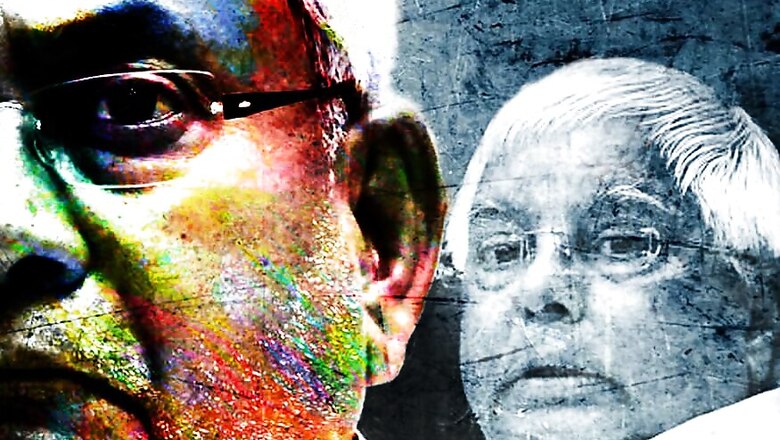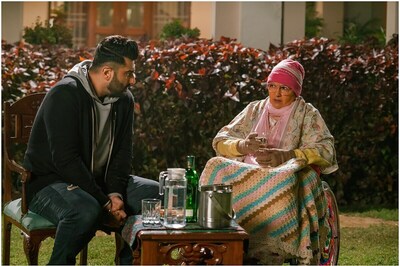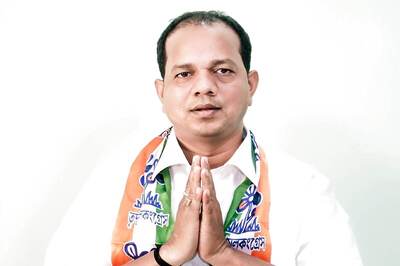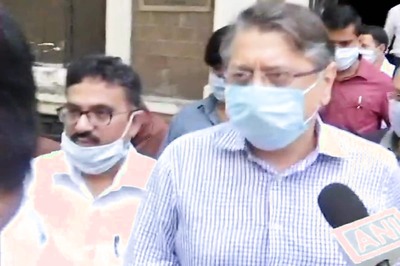
views
Karpoori Ji breathed his last in the lap of Lalu Prasad Yadav, so claimed Shivanand Tiwary, on the occasion of the birth anniversary of two-time Bihar Chief Minister and staunch socialist leader Karpoori Thakur.
The statement shows the kind of desperation among the state’s political stalwarts that they are now identifying themselves as the true flag bearer of Karpoori Thakur’s ideology. When RJD General Secretary Shivanand Tiwary, himself a disciple of Karpoori and known as permanent defector in- waiting, tried to equate his current political master with Karpoori Thakur, Lalu Yadav was serving a jail sentence in Ranchi after being pronounced guilty in a fodder scam case. However, even long before that, Lalu lost the right to contest elections after being convicted in the first fodder scam case in 2013.
This is the same Lalu Prasad Yadav who had touched the political high of his career in the mid-nineties, riding on the bandwagon of Karpoori Thakur’s social movement aimed at providing equity and justice to the downtrodden, backwards and Dalits only to later touch the nadir after being found guilty in corruption charges.
Karpoori Thakur had always fought against corruption, criminal activities in politics and dynastic politics, which Lalu simply ignored in his mission to get political power and money.
Not only Lalu, even JDU chief and Bihar Chief Minister Nitish Kumar, Deputy Chief Minister Sushil Kumar Modi, LJP leader Ramvilas Paswan and a few others still active in politics, boast of their ideological lineage of Karpoori Thakur.
However, many of them betrayed Karpoori in his last days only because the veteran leader had no substantive vote bank as he belonged to a Nai (barber) community and had an insignificant vote share. Lalu even plotted to replace him as the leader of opposition in the state assembly.
As the saying goes, Lalu flaunted his intimacy with Karpoori in public but nicknamed him Kapti Thakur in private.
But how did Karpoori Thakur become so relevant today? The answer lies in his social formulations, which strengthened the Backwards 24 years before the implementation of the Mandal Commission in the country.
Karpoori Thakur implemented the Mungeri Lal Commission report in 1979, which empowered the hitherto deprived Backward and Most Backward Classes. He classified MBC (now termed as EBCs) as a separate class among OBCs and provided them 18 percent reservation.
OBCs secured 12 percent share in government jobs and 3 percent for women. This decision irked many OBC leaders, including Lalu, who catered to more powerful organized OBC castes. But he had already carved his image as ‘Jannayak’. However, the Karpoori formula remained in force in the state even after the implementation of Mandal Commission in 1990.
With the rise of Narendra Modi in national politics, the politically significant EBCs have become the key to power, especially in Bihar where they constitute about 32 percent of the total electorate.
And Lalu knows that his M-Y (Muslim-Yadav) combination is the most powerful social combination, but far less than what is required to help his son have a chance in the electoral field.
On the other hand, Nitish Kumar, who started as a champion of the non-Yadav OBC castes and secured a decent vote share among all sections riding on his ‘Sushashan Babu’ image, has tried to implement and preserve the ideological quotient of Karpoori Thakur in true spirit.
This is also the reason why the Bihar chief minister asserted on January 24 that it was him who had thwarted the bid of Lalu Yadav to implement reservation in state government jobs on the lines of the Mandal Commision report in 1993. To further espouse and strengthen the ‘Karpoori formula’, he has demanded a Bharat Ratna for the great leader and reservation for EBCs in the central government jobs.
Meanwhile, the Narendra Modi government is already in the process of seeking constitutional status for the National Backward Commission (NCBC), which many feel, would do what Karpoori did in 1979.
One may say it could be by chance, but Nitish has remained opposed to fielding any of his family members in the political arena and has been carrying an unblemished image as a political leader and recently received the Mufti award for probity in political and public life. His decision to give 35 percent reservation to women was also considered an extension of what Karpoori had favoured.
Many believe he had also implemented a complete ban on alcohol in a bid to fulfil the vision of a ‘Nashamukt Samaj’ of Karpoori Thakur, who imposed a similar liquor ban in his short term as the chief minister, but had to withdraw it after opposition from Dalits whose livelihood was based on toddy trade.
Notably, Lalu too, is credited with instilling self respect among backwards during his first stint as the CM between 1990 and 1995. However, he faltered in the later years when the so called ‘Jungle Raj’ crippled the state.
Nitish just took the baton and mixed that awakening with economic empowerment and showed the road ahead. However, finding the development plank alone might not do the trick as he embarks on another social movement, this time against dowry and child marriage, which is not limited to any particular caste group.




















Comments
0 comment